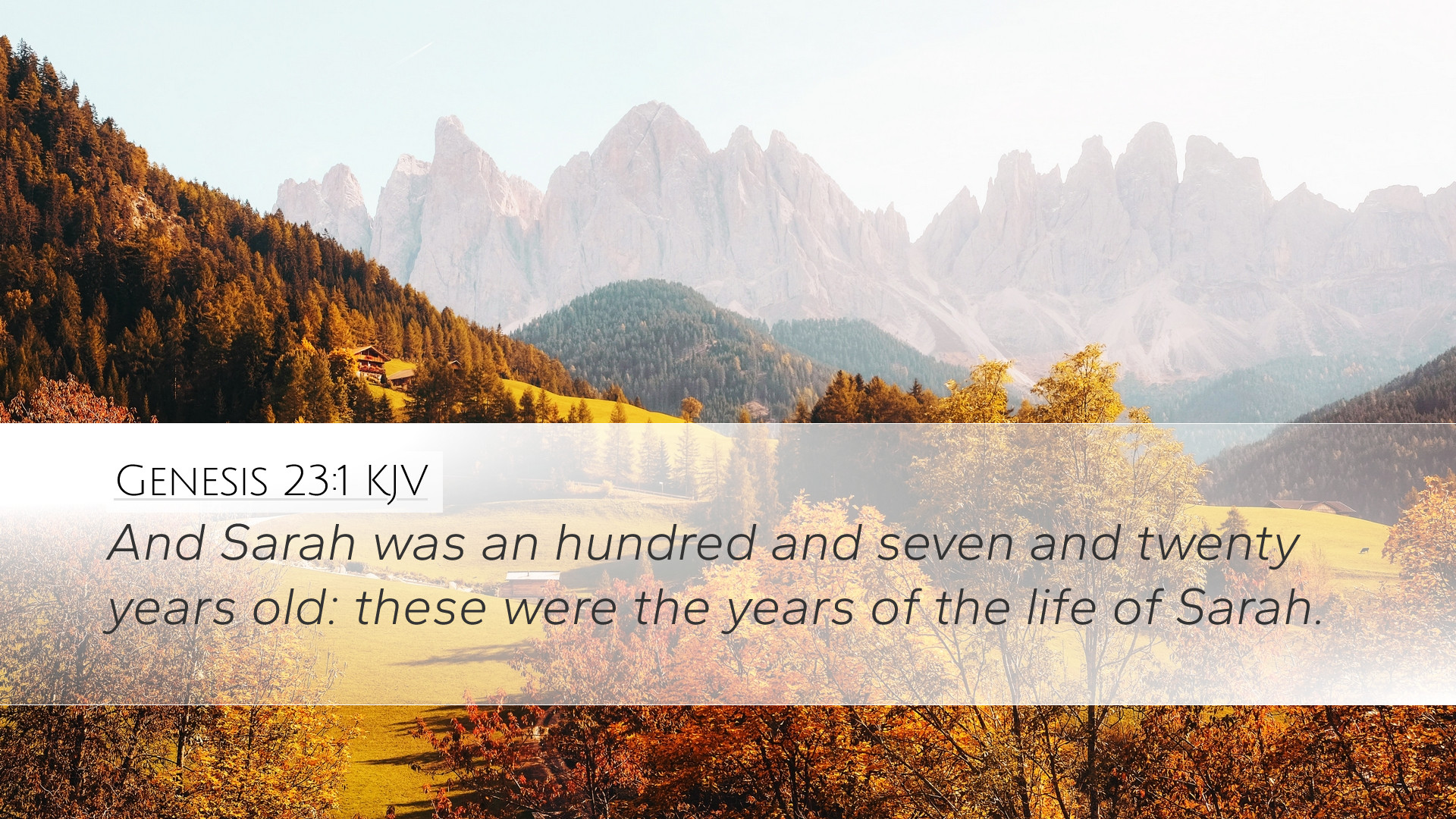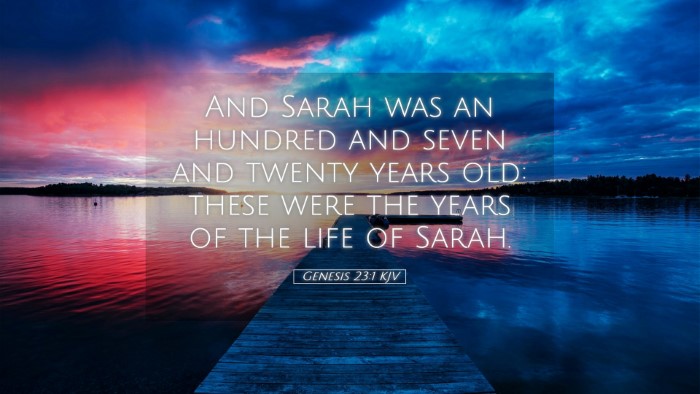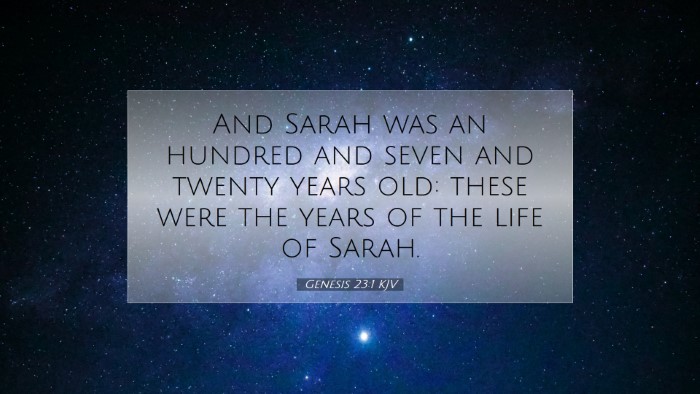Commentary on Genesis 23:1
Genesis 23:1 states: “And Sarah was an hundred and seven and twenty years old: these were the years of the life of Sarah.” This verse marks a significant moment in the narrative of Abraham and his family, particularly emphasizing the life of Sarah, Abraham's wife. Below are insights from various public domain commentaries.
Contextual Analysis
This verse serves as an introduction to a pivotal event in Abraham's life— the death of Sarah. Her age of 127 years signifies not just a lifespan but also the culmination of her experiences and significant role in God's covenant with Abraham.
Insights from Matthew Henry
Matthew Henry notes that Sarah's age at death reflects the long life granted to her, and her life story is intertwined with the promise of God. Henry emphasizes her importance as the mother of the promised son, Isaac. He reinforces that her faithful life depicts the beauty and virtues of a godly woman. He elaborates on her development from Sarai, who had endured trials, to Sarah, the matriarch who would witness God’s promises unfolding, thus emphasizing her faithfulness despite previous tribulations.
Faithful Life Reflected
Henry elaborates on how Sarah exemplifies faith. He states that she not only bore Isaac but, through her faith, paved the way for future generations. Her death not only marks a loss for Abraham but also the transition of their familial line that impacts the entire biblical narrative.
Insights from Albert Barnes
Albert Barnes focuses on the age of Sarah when she passed, relating it to the health and longevity marked in the early chapters of the Bible. He comments on how the ages of individuals may reflect God’s design in human lifespans and how each life has intrinsic worth and purpose within the divine plan.
Historical Relevance
Barnes points out that Sarah's age signifies the end of an era in Abraham's life. The narrative shifts as Sarah dies, highlighting Abraham's response as a man of faith who would seek to honor her even in death by securing a proper burial place. This act foreshadows the importance of land and heritage in the subsequent history of Israel.
Insights from Adam Clarke
Adam Clarke offers a detailed perspective on Sarah’s life and her integral relationship with Abraham. He reflects on her character, noting that she was a strong woman who influenced Abraham’s decisions. Her life is encapsulated by her unwavering support and faith in the promises given to Abraham, which is critical in understanding the dynamics of their covenantal relationship.
Significance of Burial and Legacy
Clarke emphasizes the importance of the burial plot that Abraham would seek. The fact that he would purchase the cave of Machpelah is significant as it symbolizes the beginning of the possession of the land that God promised to Abraham's descendants. This act places emphasis on the idea of legacy and permanence—both in terms of family and the fulfillment of divine promises.
Theological Reflections
Scholars reflect on Sarah’s life as a testimony of faith in God’s promises. Her life, marked by both triumph and struggle, is a reminder of the complexities of faith journeys. Her death initiates a critical moment in the covenant narrative as Abraham takes action to secure her burial, reflecting a profound respect for her life and their partnership in God's purposes.
Lessons for Today
- The Value of Legacy: Pastors and theologians may draw on this story to emphasize the importance of leaving a godly legacy for future generations.
- Faith as a Journey: Sarah’s life exemplifies that faith is often a long and winding path filled with trials, yet it is essential to remain steadfast.
- The Importance of Honoring the Departed: Abraham’s care in securing a burial site highlights the importance of mourning and honoring those who have passed.
- Historical Context Matters: Understanding the significance of land and heritage helps modern readers appreciate God’s covenant with His people.
Conclusion
Genesis 23:1 serves as a poignant reminder of the human experiences tied to God’s promises. The combined insights from Matthew Henry, Albert Barnes, and Adam Clarke showcase the multifaceted implications of Sarah’s life and death— a testament to faith, legacy, and the unfolding narrative of redemption through the ages. For pastors, students, and scholars, this verse offers profound theological reflections on the nature of faith and the importance of honoring those who have walked alongside us in life's journey.


